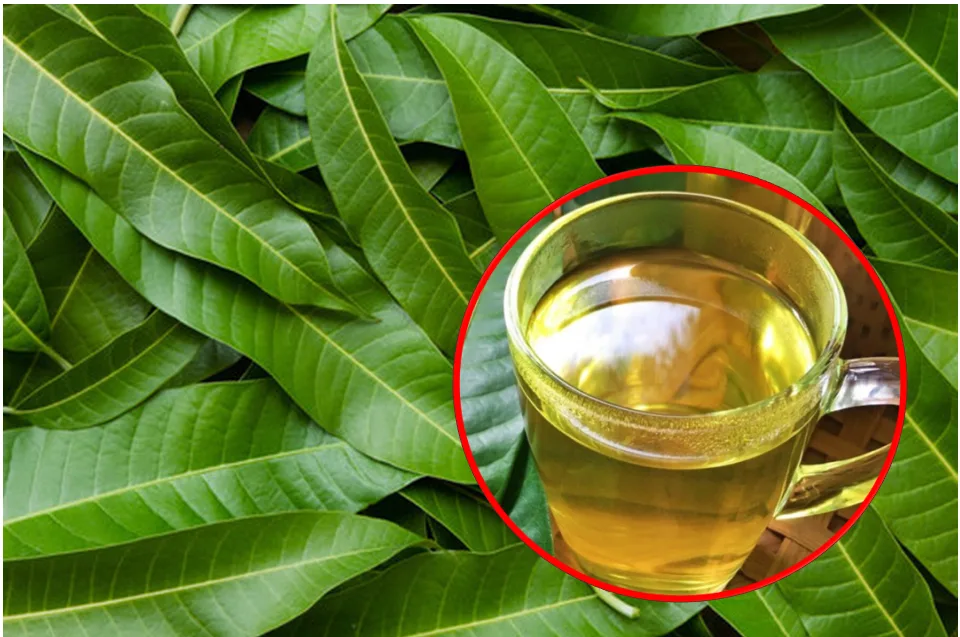Mangoes are known as the “king of fruits,” but did you know the leaves of the mango tree are also packed with health benefits? These vibrant green leaves are rich in bioactive compounds and have been used in traditional medicine for centuries. One of the easiest ways to enjoy their benefits is by brewing them into a tea. Here’s everything you need to know about mango leaf tea and why you should consider adding it to your wellness routine.
Why Mango Leaves?
Mango leaves are rich in antioxidants, vitamins (like A and C), and other bioactive compounds such as mangiferin, tannins, and flavonoids. These nutrients give mango leaves their impressive medicinal properties, making them a natural remedy for various health concerns.
Health Benefits of Mango Leaf Tea
- Regulates Blood Sugar Levels
Mango leaf tea is a natural way to help manage blood sugar levels. Thanks to the compound mangiferin, it may improve insulin production and glucose distribution in the body. It’s a popular traditional remedy for people with diabetes or those at risk.
- Promotes Digestive Health
If you struggle with bloating, indigestion, or an upset stomach, mango leaf tea might offer relief. The enzymes and antioxidants in the leaves aid in digestion, soothe the stomach, and reduce acidity.
- Boosts Immunity
Rich in vitamins C and A, mango leaves help strengthen your immune system. Regular consumption of mango leaf tea can enhance your body’s ability to fight off infections and illnesses.
- Improves Respiratory Health
Mango leaf tea has anti-inflammatory properties that soothe the respiratory tract, making it beneficial for those suffering from asthma, bronchitis, or persistent coughs.
- Supports Heart Health
The hypotensive properties of mango leaves help regulate blood pressure and improve blood circulation. This can reduce the risk of hypertension and promote overall cardiovascular health.
- Aids in Detoxification
Detoxifying your body is easier with mango leaf tea. It helps cleanse the liver and kidneys by flushing out toxins, promoting better organ function.
- Fights Inflammation and Oxidative Stress
The antioxidants in mango leaves combat free radicals in the body, reducing oxidative stress and inflammation. This is beneficial for overall health and can help manage conditions like arthritis.
- Promotes Weight Management
Mango leaf tea supports metabolism and may aid in fat breakdown, making it an excellent addition to a healthy diet if you’re looking to manage your weight.
- Enhances Skin Health
For glowing skin, mango leaf tea might be your new go-to. Its antibacterial and anti-inflammatory properties can help clear up acne, soothe irritated skin, and promote a natural glow.
How to Make Mango Leaf Tea
Making mango leaf tea is simple and can be done in just a few steps:
- Collect 10–15 fresh or dried mango leaves.
- Rinse the leaves thoroughly.
- Boil the leaves in 2–3 cups of water for about 10–15 minutes.
- Strain the tea into a cup and let it cool slightly.
- Optional: Add honey or lemon for extra flavor.
Drink the tea warm for the best results. You can enjoy it 1–2 times a day as part of your wellness routine.
Precautions to Keep in Mind
While mango leaf tea offers numerous benefits, it’s essential to use it wisely:
Pregnant or breastfeeding women should consult a doctor before consuming it.
Those on medication for chronic conditions, such as diabetes or hypertension, should speak with their healthcare provider to avoid potential interactions.
Avoid overconsumption, as it may lead to mild side effects.
Final Thoughts
Mango leaf tea is a simple, natural way to support your health. Whether you’re looking to manage blood sugar, boost immunity, or improve digestion, this tea offers a host of benefits without the need for synthetic additives.
Next time you’re enjoying a mango, don’t discard the leaves—they might just be your ticket to better health!
Would you try mango leaf tea? Let us know your thoughts in the comments below!










